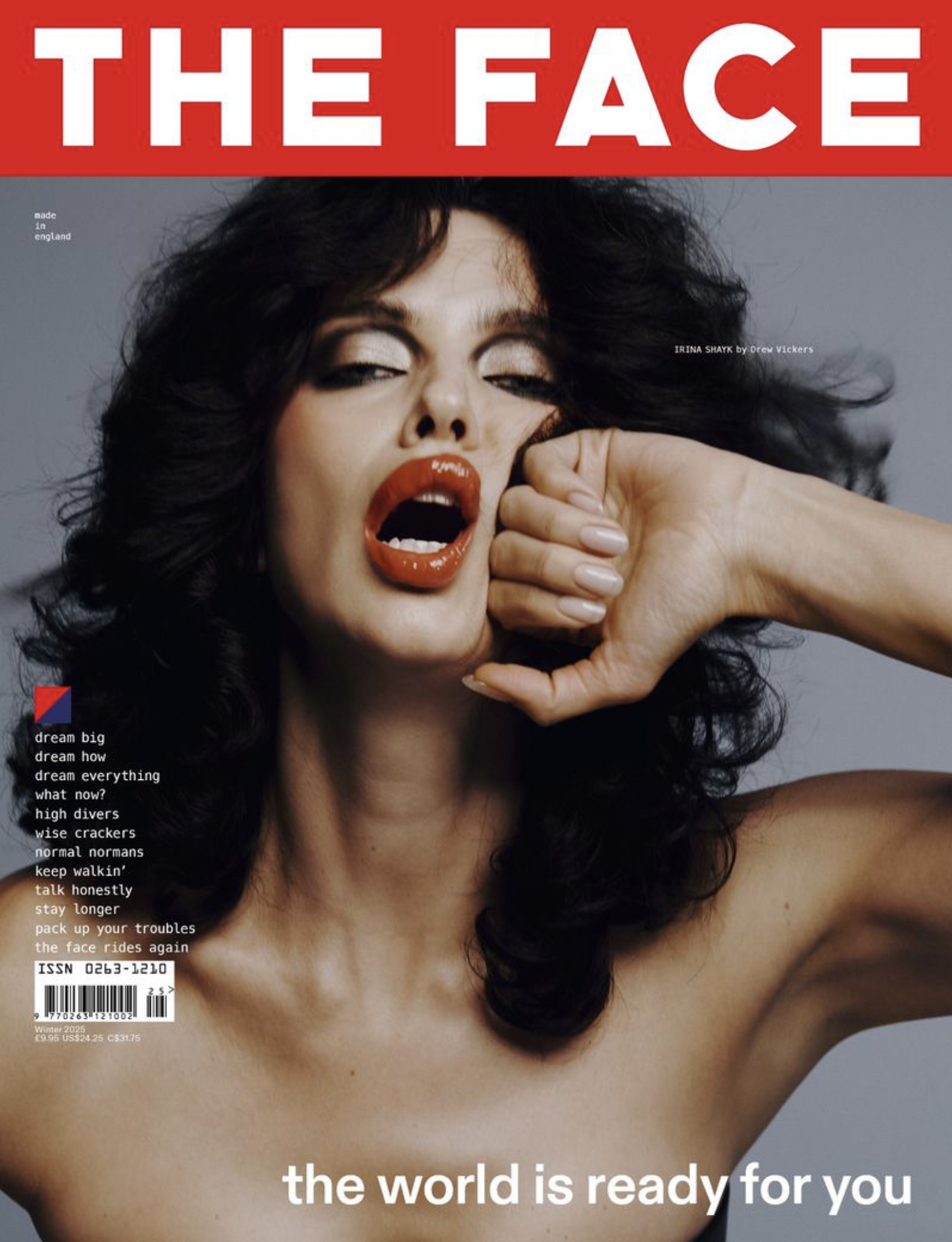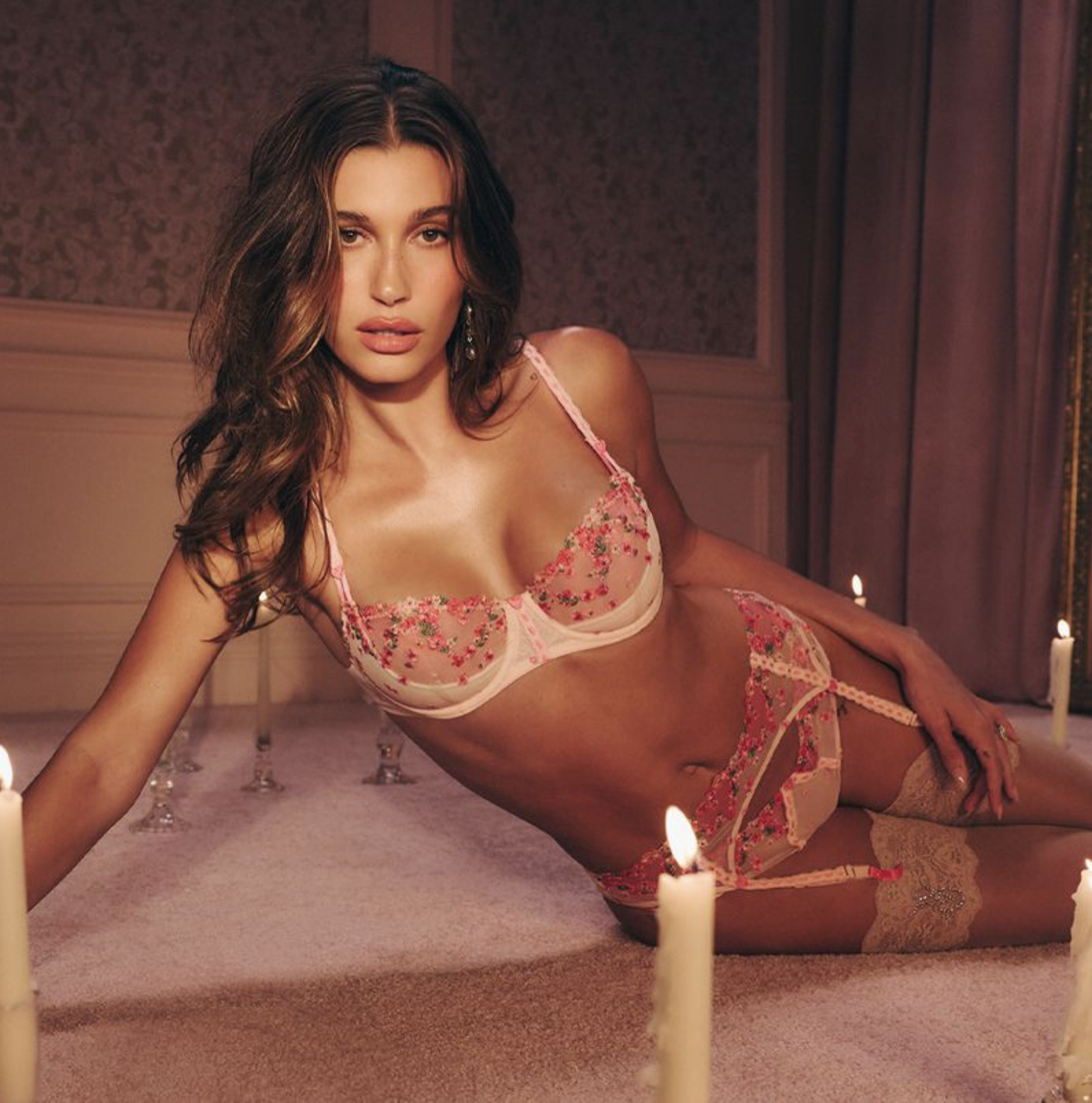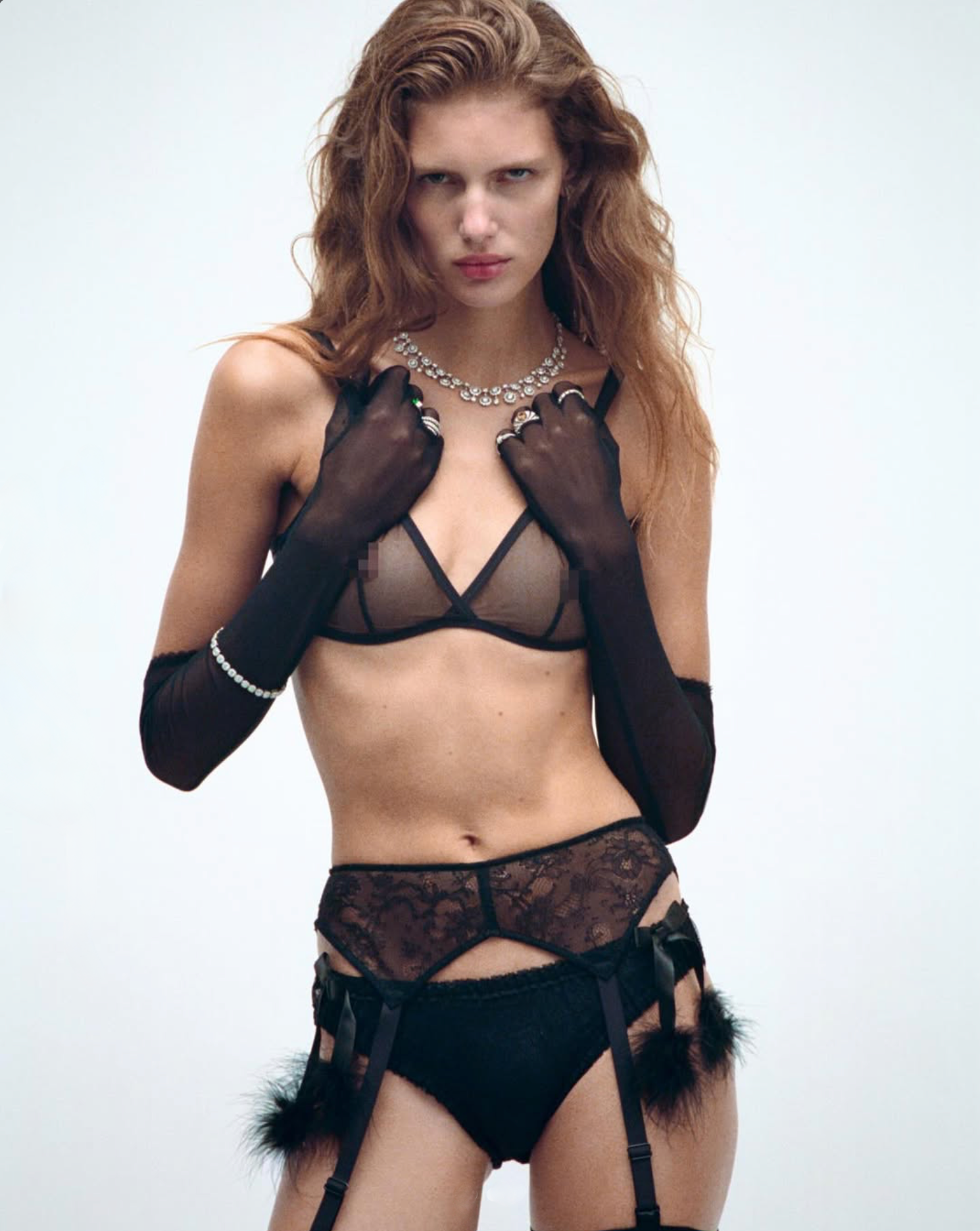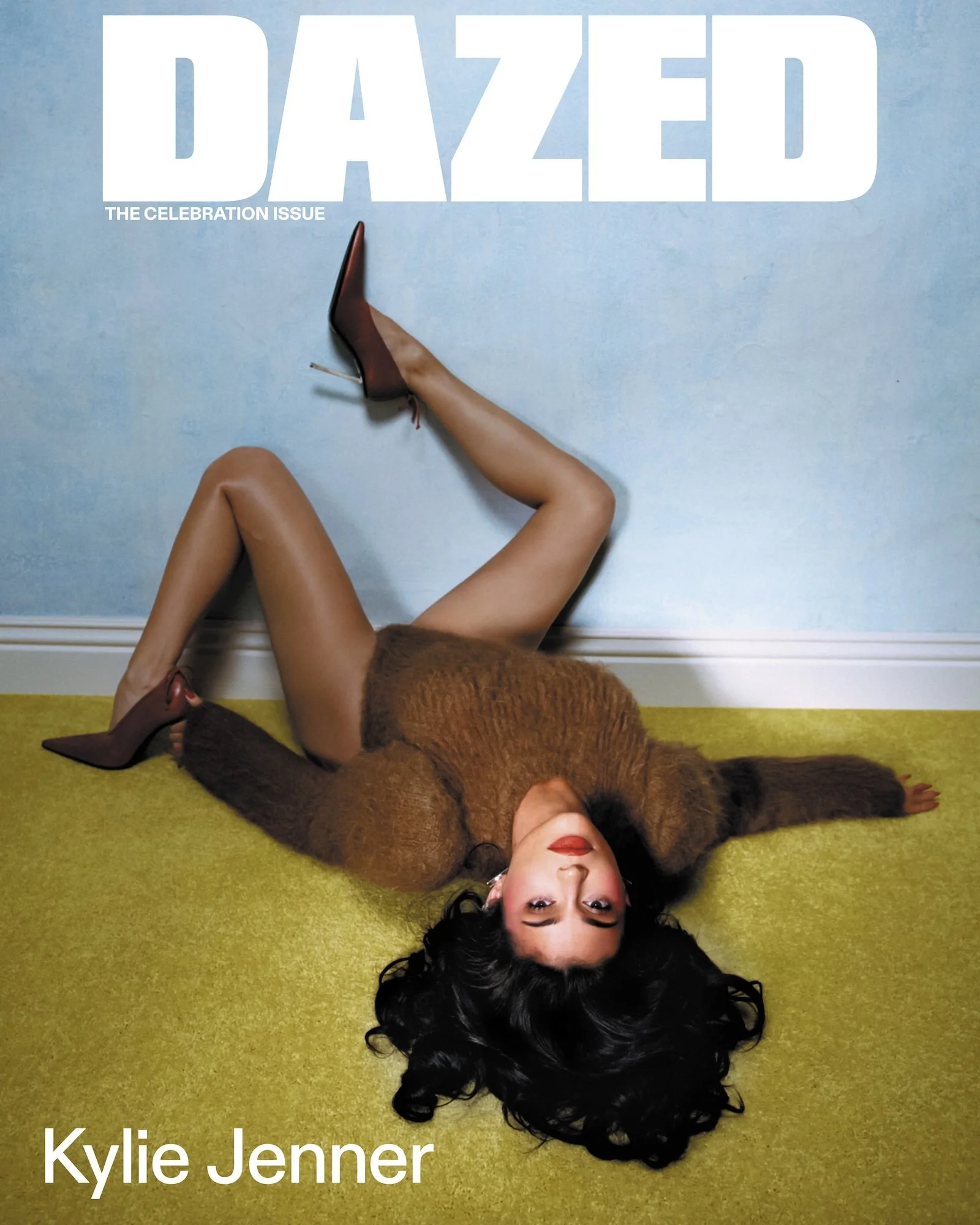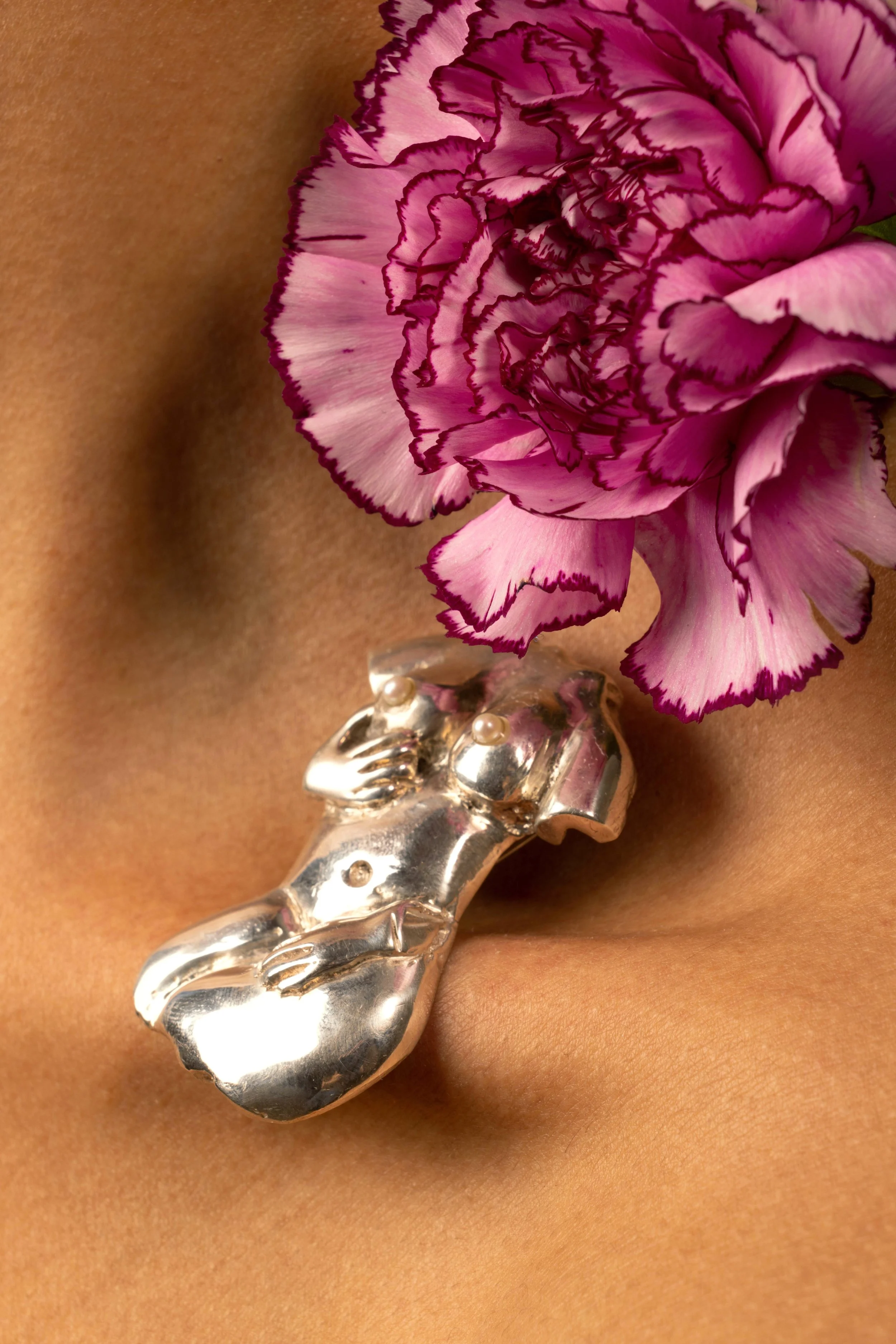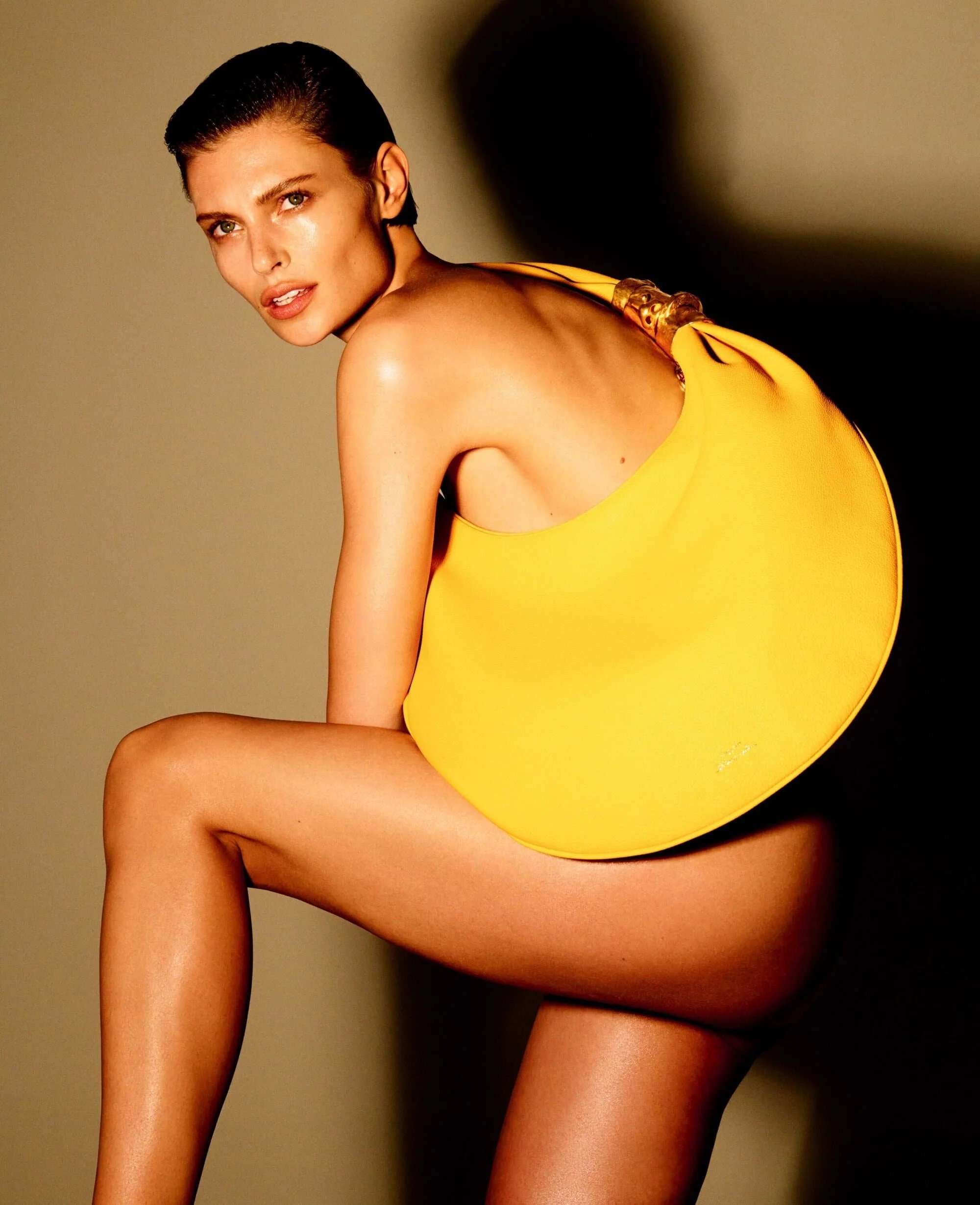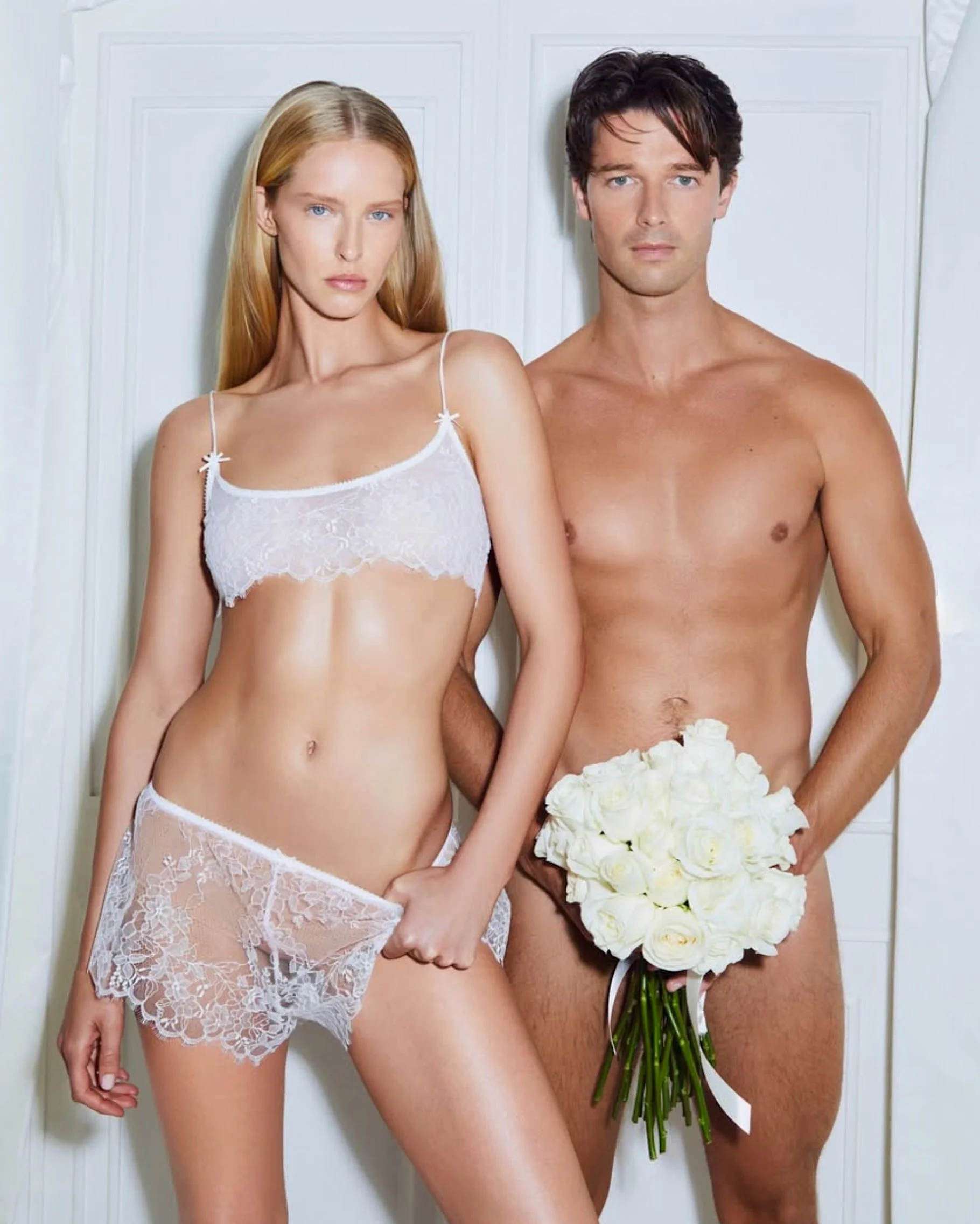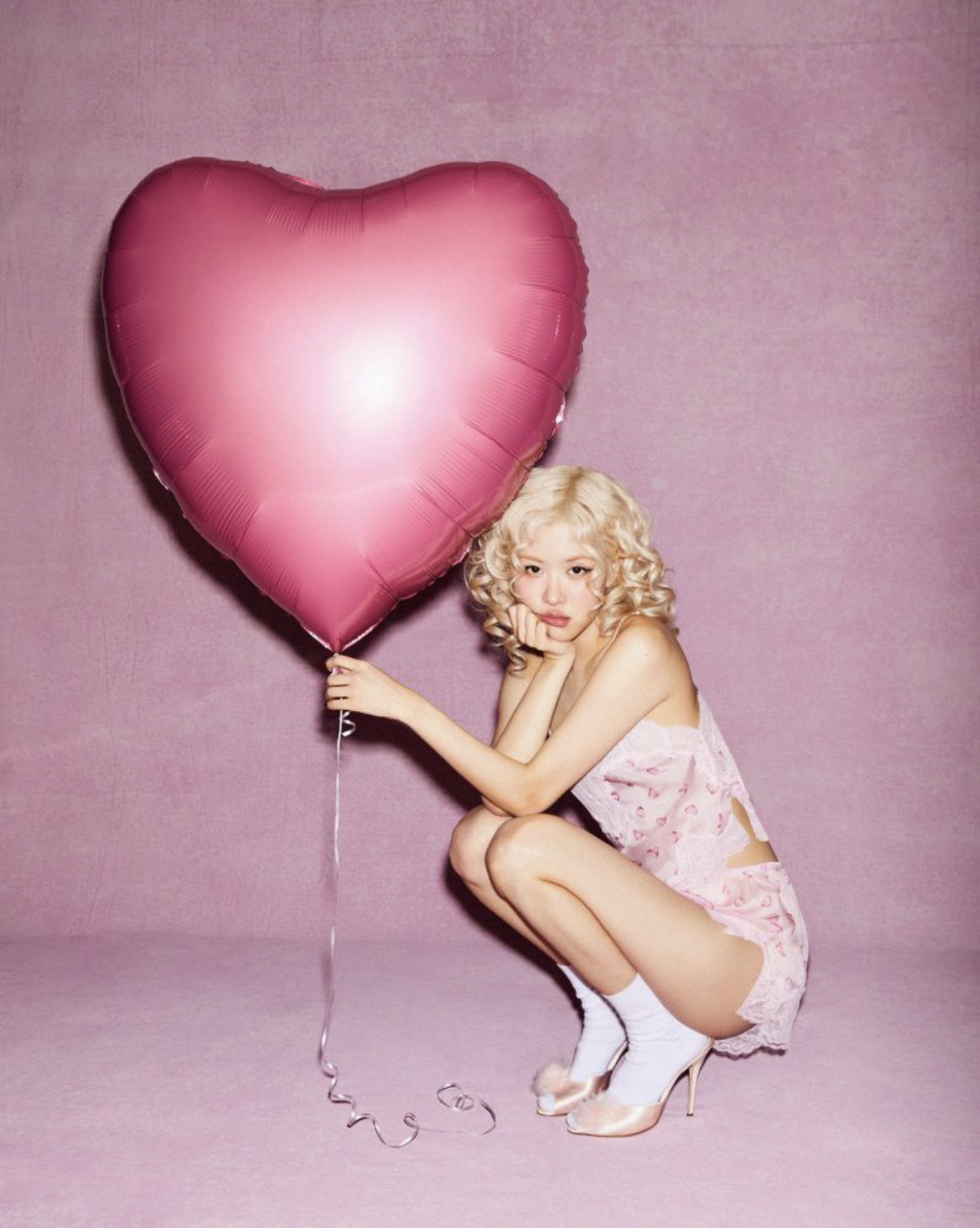Stella Tennant on Vogue Italia as Ethel Granger | Body Image Research Update
/ Stella Tennant fronts the cover of Vogue Italia’s September 2011 issue, lensed by Steven Meisel.
Stella Tennant fronts the cover of Vogue Italia’s September 2011 issue, lensed by Steven Meisel.
The truly beautiful, high fashion image is inspired by Ethel Granger (1905-1982) who tightened herself into corsets to please her husband.
Ethel is described as a revolutionary women, who enjoyed indulging her husband’s tastes, including piercings along with her record-smashing 33 centimeters of waist.
Is it coincidence that 60 years later in our women’s rights world, Ethel’s record-setting waist measurement still stands?
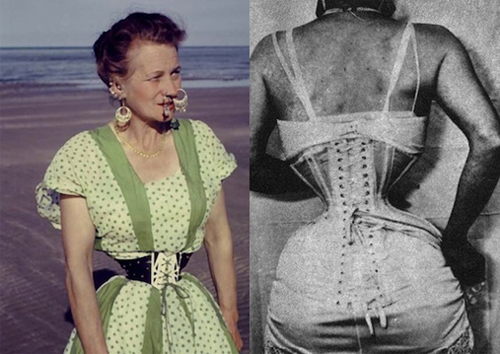
Artist Rebecca Massey
 Metamorphosis by Rebecca Massey, via Vogue Italia Photo VogueChange is necessary to evolve, even though it’s frightening ~ Rebecca Massey (website)
Metamorphosis by Rebecca Massey, via Vogue Italia Photo VogueChange is necessary to evolve, even though it’s frightening ~ Rebecca Massey (website)
Next: New research on media models, body image, self-perceptions among obese people.
Media Models & Body Image
Media’s Focus On Ideal Body Shape Can Boost Women’s Body Satisfaction, for Awhile Science Daily
An April 2011 study contradicted results on prior surveys suggesting that women are turned off by ads of thin women (not necessarily size 0), causing dissatisfaction and self-loathing among women of varying sizes.
The survey conducted at Ohio State University exposed women to faux magazines with text and images of only thin, idealized body types for five days. The results contradict popular theories, based on women only looking at images of thin women. At Ohio State University, the readers’ own body satisfaction improves.
There was a catch. The women reporting the greatest satisfaction were also more likely to report skipping meals, cutting carbs and other dieting behaviors during the week of the study.
Silvia Knobloch-Westerwick, co-author of the study, said: “But it is a losing battle. Women are motivated by these fitness and beauty magazines to try to attain these supposedly perfect bodies, and may even get a short-term body image boost when they start dieting. However, research shows that most diets fail and they’re eventually going to be back being unsatisfied with their bodies.”
How Materialistic Advertising Messages Negatively Shape the Female Body Image Science Daily
This research suggests that materialism, both as an internalized value and as a depiction in the media, should be taken into account for media literacy interventions and policy changes in the advertising industry. Ashikali: “Women would benefit from gaining greater awareness of current marketing strategies, as well as becoming more critical of the images and messages conveyed by materialistic media. Our work highlights the need for less emphasis on materialistic messages in the marketing of goods and products, as well as on the promised unrealistic benefits of owning a particular good.”
Positive Family & Friends Not Enough Support for Fat Women
Fat-stigma study: Mass media messages appear to trump opinions of family, close friends. Science Daily
Even when close friends and family don’t judge women as ‘fat’, women underestimate how they are judged by their social network. Arizona State University researchers interviewed 112 women aged 18-45 and 823 others in their family and social networks.
The study’s lead author Alexandra Brewis noted that even though obesity is a major medical and public health challenge, the stigma attached to it needs to be examined.
“The question this leaves us with is: ‘If it isn’t the opinions of friends and family that make us feel so bad about being overweight, then what does?’ What seems most likely is that media and pop cultural messages are so pervasive and powerful that even the most loving support of those closest to us provides only limited protection against them,” said Brewis, who also is a professor and executive director of the School of Human Evolution and Social Change in ASU’s College of Liberal Arts and Sciences.
Brewis doesn’t acknowledge the possibility that the woman herself has a legitimate amount of self-loathing or defeatism, perhaps believing health statistics around obesity, longevity and health problems. Perhaps she genuinely wants to be thinner because she actually, sincerely believes that she would look more attractive thinner. Perhaps she is winded or having difficult moving and is angry with herself that she doesn’t value her health — and her own body — enough to nurture a healthier lifestyle. Perhaps she has regained lost weight and feels defeated. Perhaps she doesn’t feel entitled to be a healthy body weight. Perhaps she is using weight to cover up body guilt that women commonly have in our sensually judgmental, religious culture.
The press release doesn’t state the actual physical health — in terms of weight, BMI or other medical measures — of the study’s participants. We don’t know if these are medically average weight women convinced they are medically obese or obese women who feel lousy over being at their weight, inspite of positive affirmations from family and friends.

